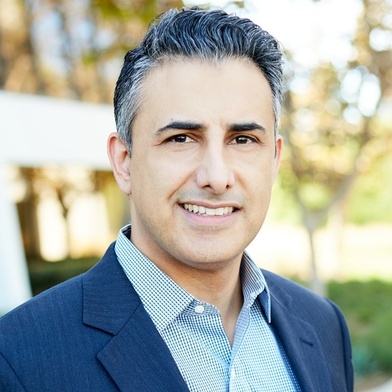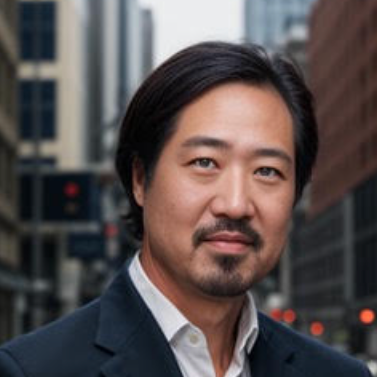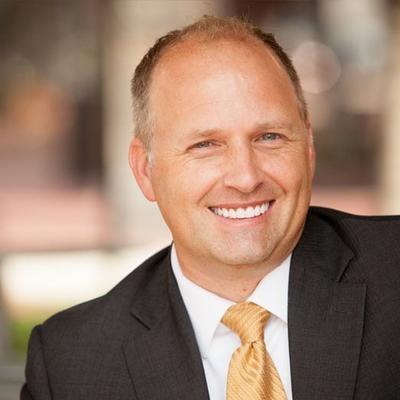New Bedford Patent Attorneys & Lawyers
How it Works

Ross Brandborg

Kanika Radhakrishnan

David Yamaguchi

Ali Shalchi

Eric Alspaugh

Joel Douglas

Anthony Whittington, Jd/Mba

Gene Rhough

Samuel Pierce

Niq Howard
New Bedford Patent Lawyers
Why use UpCounsel to hire a New Bedford Patent Attorney?
Average experience
You always get experienced professionals and high caliber work.
Faster
Your work gets done quickly because professionals are always available.
More cost effective
We use technology to cut traditional overhead and save you thousands.
UpCounsel has been talked about in:
Legal Services Offered by Our On-Demand New Bedford Patent Attorneys
Our experienced New Bedford patent attorneys & lawyers represent individuals and businesses throughout the world with domestic and foreign patent preparation and prosecution matters. They have extensive experience handling applications from nearly every sector of technology, including biotechnology, computer hardware and software, communication networks, internet systems and methods, automotive, medical equipment, construction technology, consumer electronics, and clean technology research and development.
Our patent attorneys are of the most highly trained in the industry, requiring a scientific background, and passing a second level of testing known as the Patent Bar Examination. Thousands of patents are submitted to the patent office every day and a patent committee reviews each patent for its validity. The process requires that correctly drafted documentation present a clear case for the novelty of the invention, which is best made by a patent attorney with a higher education background in your industry.
Our New Bedford patent attorneys & lawyers can help you file a provisional patent, which lasts for 1-year and allows you to immediately begin using/manufacturing your invention with the confidence that your idea is protected. These types of patents are great if you think your idea will change a lot over the next year before you file a (non-provisional) patent. These patents are easier to obtain and are less expensive but you should have a patent lawyer review your provisional patent application to insure that you are meeting your objectives when you file your patent.
Improve Your Legal ROI with Affordable Patent Attorneys that service New Bedford, MA.
What Our Customers Have to Say
"UpCounsel gives me access to big-firm lawyers minus the big-firm price tag. I work with several attorneys on the platform and there are never surprises...I always receive quality legal work at competitive rates that larger firms simply cannot match."
"Every startup needs to know about UpCounsel. We found great attorneys at great prices and were able to focus our resources on improving our business instead of paying legal bills."
"Before UpCounsel it was hard for us to find the right lawyer with the right expertise for our business. UpCounsel solves those problems by being more affordable and helping us find the right lawyer in no time."
This is the most recent 20 reviews out of 35 reviews for Patents attorneys in Massachusetts

Patent Consultation
"My partner and I were floored by how rapidly Joel's firm and our attorney Tom were able to correct the issue of abandonment of our patent with the USPTO. They had the matter resolved in days and were so pleasant to speak to and patient in answering our questions. I look forward to working again with them in the future!"
Colleen T
.
Watertown,
MA,
over 2 years ago

Conduct a Freedom To Operate analysis
"It was a pleasure working with Ross! The communication between us was very clear and timely. It was evident that he had extensive engineering experience. Upon receiving my drawings, he immediately understood them, asked good questions, and got to work. Additionally, he was open to having as many phone calls as needed."
Ruben O
.
Boston,
MA,
over 3 years ago

File Provisional Patent
"I really appreciate and love working with Jason. From the discussions we had, I can tell that he is very knowledgeable, professional and courteous. He tries his best to help you in your work and meet your deadlines."
Adrian F
.
about 4 years ago

Provisional Patent
"Kanika is a great IP attorney, excellent insights, responsiveness and care. We are satisfied !"
Khadija K
.
Norwood,
MA,
over 4 years ago

15 Minute Patent Consultation
"Very professional!"
Alan Z
.
Boston,
MA,
about 6 years ago

Conduct Patent Search
"Ms. Radhakrishnan Ian very knowledgeable, professional and an expert that really helps us understand what we need to do in order to get our patent launched. She's very responsive and I highly recommend her to anyone needing a professional patent lawyer."
Deborah A
.
Kingston,
MA,
about 6 years ago

15 Minute Patent Infringement Consultation
"Great work!"
Stefan S
.
Boston,
MA,
over 6 years ago

File Design Patent
"Ross is efficient and got our patent filed on time.."
Sandip A
.
Arlington,
MA,
over 6 years ago

Assist with Other Patent Matter
"Was great experience with Richard... Thanks... We highly recommend him"
Maher George B
.
Methuen,
MA,
over 6 years ago

Non-Provisional Patent
"I highly recommend Kanika for anyone who is looking for a great patent lawyer. During my work with Kanika, I found she is very professional, responsible, and responsive. The work is quite challenging and requires a strong technical background. Kanika was able to quickly understand the non-trivial technical description, and delivered a very satisfactory, high quality work within a short period of time. It is a privilege and enjoyable experience to work with someone who is that professional, responsible and responsive. I strongly recommend Kanika to anyone who's looking for a great patent lawyer and of course, I'm very looking forward to work with Kanika again :)"
Ye T
.
Shrewsbury,
MA,
over 6 years ago

Conduct Patent Search
"Very professional and helpful!"
Suzanne F
.
Winchester,
MA,
over 6 years ago

Non-Provisional Patent Services
"I would recommend James' services to others. I used him for a USPTO non-provisional filing and then PCT filing. James set me up with an experienced attorney in his firm."
Terence D
.
Boston,
MA,
over 7 years ago

File Utility Patent
"Just beginning the process of turning my provisional into a non-provisional patent. So far, Jack has been great. A straight-shooter I hope to work with on many other projects."
Ralph G
.
Belchertown,
MA,
over 7 years ago

15 Minute Patent Infringement Consultation
"He addressed all my concerns very efficiently and provided me as much information as possible within the consulation."
Parul N
.
Marlborough,
MA,
over 7 years ago

File Utility Patent
"Jack is amazing. He really took my idea and made it into something that would be more valuable than I had even imagined."
Heather L
.
Shrewsbury,
MA,
over 7 years ago

Patent Consultation
"Richard is quick, efficient and knowledgeable"
Jesse S
.
Watertown,
MA,
over 7 years ago

Provisional Patent
"Kanika is very knowledgeable and knows exactly what I need for my situation."
Chris K
.
Somerville,
MA,
over 7 years ago

15 Minute Patent Consultation
"Kanika was very knowledgeable and efficient in her communication. She is a real thought partner and understands what I need."
Chris K
.
Somerville,
MA,
over 7 years ago

Conduct Patent Search
"Less than 24-hour turnaround. I provided my provisional patent documentation and Richard's team produced a nice summary of prior art found the next morning."
Dan S
.
Boston,
MA,
over 7 years ago

Assist with Patent Litigation
"Stefan was able to distill a very complex situation with 10+ year history down into a concise and articulate argument."
Michael I
.
Norfolk,
MA,
about 8 years ago
Related Articles
Key Takeaways
- The inventive step (or non-obviousness) ensures a patentable invention goes beyond routine development and is not obvious to someone skilled in the field.
- It is one of the three core patentability criteria worldwide, along with novelty and industrial applicability.
- Determining inventive step involves assessing whether the invention shows a technical advancement or economic significance beyond prior art.
- Standards for inventive step differ slightly between jurisdictions such as the USPTO, EPO, and PCT framework.
...
Read MoreWhat Can Be Patented and How to Qualify
- 9 min read
Key Takeaways
- Patents are granted for inventions that are new, useful, and non-obvious.
- Eligible inventions must fall under defined categories: processes, machines, compositions, manufactured items, or new plant varieties.
- You cannot patent abstract ideas, natural phenomena, or laws of nature.
- Both improvements and new applications of known inventions may be patentable.
- To be granted a patent, your invention must be clearly described and fully enabled.
- Some software, business methods, and biotechnology innovations may qualify—but must meet specific criteria.
- Design and plant patents focus on aesthetic and biological uniqueness respectively, while utility patents cover function and structure.
- Timing is essential: prior public disclosure or sale can disqualify an invention.
- UpCounsel can connect you with a qualified patent attorney to help navigate the application process.
What Can Be P
...
Read MoreKey Takeaways:
- Food patents protect edible products, food-related processes, and compositions under Patent Class 426.
- Patent eligibility for food requires non-obviousness, originality, utility, and full disclosure of the process.
- Food design patents protect unique appearances of food products but last only 14 years.
- Common food patents include innovations in shelf life, flavor, shape, texture, and production processes.
- Patent applications must
...
Read MoreKey Takeaways
- There is no single worldwide patent; protection is achieved by filing national or regional patents.
- An international patent application under the Patent Cooperation Treaty (PCT) simplifies filing in over 150 countries, providing a unified procedure before entering national phases.
- Applicants gain up to 30 months from their initial filing date to decide where to pursue protection.
- Common mistakes include assuming a PCT itself grants rights or missing strict filing deadlines.
- Costs vary widely, often $4,000–$5,000 initially, plus thousands more per country for national phase entry.
...
Read More